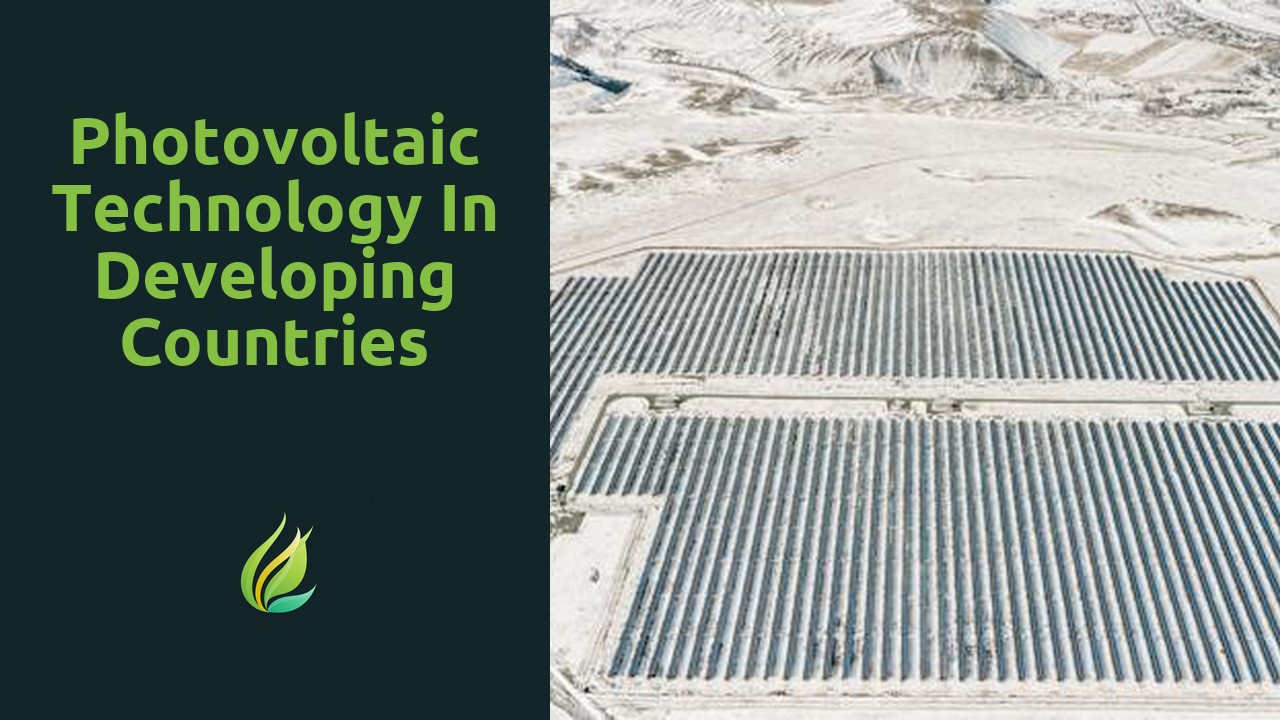Photovoltaic Technology in Developing Countries

The impact of photovoltaic technology on rural electrification
Rural electrification has long been a challenge for developing countries, with many remote areas lacking access to reliable and affordable electricity. However, the advent of photovoltaic technology has brought about a remarkable impact on rural electrification. Photovoltaic systems, commonly known as solar panels, have the ability to harness the energy from the sun and convert it into electricity. This technology has proven to be a game-changer for rural communities, providing them with a sustainable and clean source of power.
One of the key advantages of photovoltaic technology for rural electrification is its scalability. Solar panels can be installed on a small scale to power individual households or on a larger scale to serve entire communities. This flexibility makes it possible to tailor photovoltaic systems to meet the specific needs of rural areas. Additionally, the modular nature of solar panels allows for easy expansion in the future as the demand for electricity grows. This means that rural communities can start small and gradually increase their capacity, making photovoltaic technology a cost-effective solution for rural electrification.
Related Links
Types of Solar Power PlantsPhotovoltaic Technology in Space Applications
All there is to know about foam injection molding Manufacturing
Comparison of Biomass Power Plants to Other Clean Energy Sources
The Role of Biomass Power Plants in Renewable Energy Mix
Biomass Power Plant Emissions and Environmental Impact